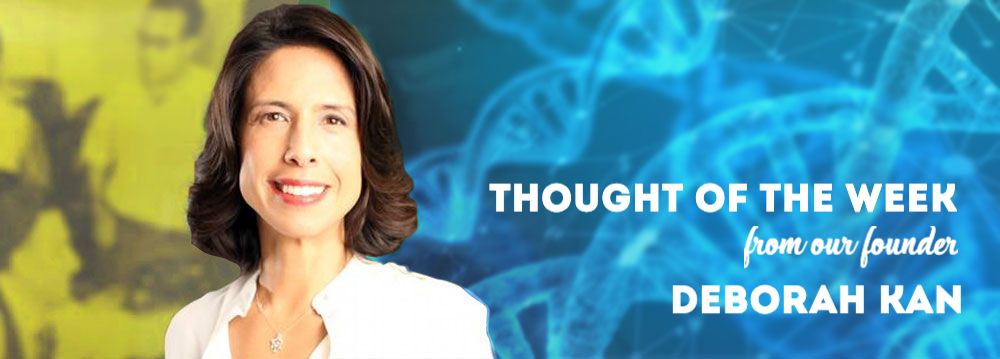Every week in the Being Patient weekly newsletter, founder Deborah Kan shares a thought with readers. This holiday, she reflects on what she is grateful for.

Most people will remember the year 2020 as annus horribilis: a year we spent more time than we wanted inside our own homes, ended social engagements and sat and waited to see who would come out the winner in the race for a vaccine for COVID-19.
The fact that three pharma companies were able to come out with three variations of a vaccine in record time got me thinking about what amazing accomplishments we human beings can make if we are given a challenge. So why haven’t we done so when it comes to finding a cure to Alzheimer’s disease?
It’s a difficult question to answer, given so many brilliant minds have spent decades trying to unlock the mystery of what the right target is for neurodegeneration. As a handful of scientists continue to question if beta-amyloid plaque is the right target for a cure, so too are some patients diagnosed with neurodegeneration. Wherever the truth lies, there was more proof this year substantiating the belief that in many cases, lifestyle factors can actually ‘kick the can down the road’ and bolster our brain health. (In fact, the Lancet Commission on Dementia Prevention published a 2020 report on 12 ways we can actively reduce our risk of dementia.)
Although we may not have a cure for Alzheimer’s, the optimist in me believes we are certainly making progress in the Alzheimer’s landscape. From better, faster diagnosis to testing different drug therapies, 2020 has been a year of specific accomplishments in dementia research. For example, the first blood test to detect Alzheimer’s came to market this past month, with several more to follow in the next couple of years and some claiming to identify new biomarkers in the blood. Faster diagnosis through blood testing means that doctors have a better tool to identify pre-symptomatic patients that will allow for better treatment and better research.
This year also saw more testing of immunotherapy drugs, medications designed to stimulate an immune response to either prevent or treat Alzheimer’s disease. Biogen’s aducanumab made a dramatic reappearance after being pulled from the clinical trials market over confusion of data analysis. Patients and families we interviewed who were on the drug felt like it was slowing the disease progression down but the pharma company now must prove to the FDA that the drug is actually working. Pharma company Eisai’s Ban2401, another immunotherapy, is currently recruiting for a phase 3 clinical trial. Scientists are hoping to produce the same successful results with treating neurodegeneration they have had using immunotherapy with certain cancers.
Our genetics are also painting a different story about how certain newly discovered variants could actually minimize risk for people who carry one or two copies of ApoE4, known as the Alzheimer’s gene. Scientists are learning more about a newly discovered gene that actually negates the risk of developing Alzheimer’s in people who already have a genetic predisposition.
As we inch forward to understanding more about Alzheimer’s, I remain fascinated by scientists who are pioneering new dimensions of discovery on topics like the importance of the brain-gut connection in preventing disease and how ketones could provide an alternative source of fuel for maintaining healthy brains.
I have learned this year that although we are all hoping for that magic cure, it is most helpful to look at Alzheimer’s progress as a puzzle. The more people we have – not only researchers but also patients and caregivers sharing insights, the closer we will be to putting all of the pieces together.
I look forward to 2021 and continuing this journey with you.
Happy New Year,
Deborah Kan
